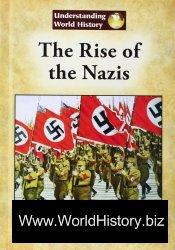The futility and danger of isolationism were exposed in September 1931 when the Japanese, long dominant in Chinese Manchuria, marched their army in and converted the province into a puppet state named Manchukuo. This violated both the Kellogg-Briand and Nine-Power pacts. China, now controlled by General Chiang Kai-shek, appealed to the League of Nations and to the United States for help. Neither would intervene. When League officials asked about the possibility of American cooperation in some kind of police action, President Hoover refused to consider either economic or military reprisals. The United States was not a world policeman, he said. The Nine-Power and Kellogg-Briand treaties were “solely moral instruments.”
The League sent a commission to Manchuria to investigate. Henry L. Stimson, Hoover’s secretary of state, announced (the Stimson Doctrine) that the United States would never recognize the legality of seizures made in violation of American treaty rights. This served only to irritate the Japanese.
In January 1932 Japan attacked Shanghai, the bloody battle marked by the indiscriminate bombing of residential districts. When the League at last officially condemned their aggressions, the Japanese withdrew from the organization and extended their control of northern China. The lesson of Manchuria was not lost on Adolf Hitler, who became chancellor of Germany on January 30, 1933.
It is easy, in surveying the diplomatic events of 1920-1929, to condemn the United States and the European democracies for their unwillingness to stand up for principles, their refusal to resist when Japan and later Germany and Italy embarked on the aggressions
That led to World War II. It is also proper to place some of the blame for the troubles of the era on the United States and the European democracies, which controlled much of the world’s resources and were primarily interested in holding on to what they had.




 World History
World History









